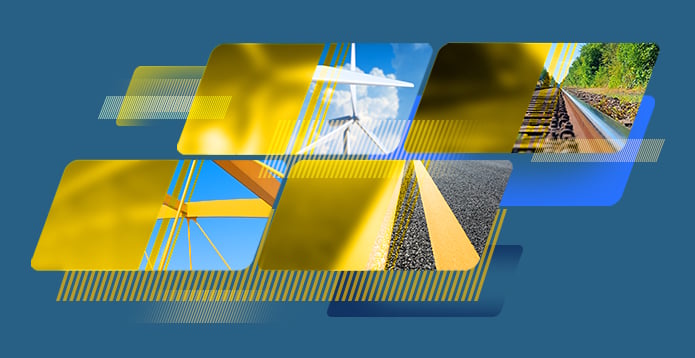The UK government has provided a route for businesses to support Ukrainian refugees fleeing the war in their country into work or study in the UK.
This guide looks at the sponsorship scheme that has been introduced and the ‘right to work’ checks businesses must complete.
What are the options?
In response to the Ukraine crisis, the UK government has launched two bespoke visa schemes for Ukrainians and their qualifying family members. Both schemes give the opportunity for applicants to relocate to the UK with permission to work, study, and claim public benefits. Both schemes also give time-limited permission in the UK for three years only, although we may see options for extension and/or settlement at a later date.
The two schemes available at present are the family scheme and the sponsorship scheme, which is also known as Homes for Ukraine.
The family scheme requires the applicant to have a qualifying UK-based family member to support their application. Eligibility is not based on the nationality of the UK resident, instead that person’s immigration status dictates whether the applicant may apply. To be successful, there must be a UK supporter who is a British or Irish national, is permanently settled in the UK, has status under the EU Settlement Scheme, or is someone with asylum or protection status. Applications are free of charge and – where the applicant has access to their passport and to documents proving the connection with their qualifying family member – relatively easy to process.
This scheme does not cover everyone, and Ukrainians in the UK as temporary migrants cannot support their family in this way, for example. These, and any other applicants, may apply via the sponsorship scheme instead.
The sponsorship scheme turns attention away from the nationality of the UK supporter and towards the practical offer of sponsorship that they can make. There must be an offer of suitable UK accommodation for a minimum six months. Such an offer can be made by an individual or an organisation, such as a business or a charity. This means that there is an opportunity for an applicant with no prior UK connections to relocate here.
Limitations of the schemes
The family scheme has worked reasonably well where an applicant can satisfy the qualification criteria and prove this. Where documents are missing, applications can still be made but there have been reports that these are taking longer to be processed. If specific criteria cannot be satisfied, such as the need for the applicant to have been living in Ukraine on or immediately before 1 January 2022, the route cannot be used.
The sponsorship scheme has been seeing bigger problems, largely due to the requirement for a named sponsor on the application form. Without this, the application cannot be processed, so a service is needed to match a potential applicant with a suitable UK sponsor. When the sponsorship scheme launched there was no centralised function matching in this way, meaning that those wishing to offer support need informal connections.
Charities have been trying to assist, but the numbers approved under this route remain a fraction of the family scheme. At time of writing, 12,500 applications have been approved under the sponsorship scheme and 28,500 under the family scheme. This a reflection of the shorter period during which the sponsorship scheme has been operational, but also the difficulties that applicants are experiencing.
Successful applications may now rise sharply.
The Scottish and Welsh governments can act as a 'super sponsor', in which the government is named as sponsor without the need to match applicant and a UK individual or organisation. Also, on 1 April an official "matching service" was announced, administered by the charity Reset Communities and Refugees. It is to be hoped these initiatives together will do justice to the goodwill and generosity of the public.
On 6 April, further guidance was introduced to confirm how Ukrainians arriving in the UK under these schemes can be employed in the UK, with assistance for employers on conducting adequate right to work checks:
- those with a stamp or a visa in their valid Ukrainian passport, granting permission to stay under a Ukrainian scheme can have their document manually checked by a UK employer for initial confirmation of right to work;
- those without a passport can combine their 'Form for Affixing the Visa’ (FAV) – the paper to which a visa is affixed where there is no passport available – with a positive verification notice from the Employer Checking Service to demonstrate initial proof of right to work;
- follow-up checks will be required as status comes to an end, by which time individuals should have a three-year biometric residence permit, or possibly digital confirmation of status instead;
- caution is urged for those with Irish stamps on their passports only; these individuals will likely need to make an application direct to UK Home Office – Irish status is not valid in the UK;
- the government warned: "any prospective employee who is a Ukrainian national, who has not applied for permission to stay in the UK, will not have a right to work. This means you should not employ them until they have taken action to regularise their status in the UK."
Long-term, planning is needed to support applicants as they move beyond initial accommodation and towards the end of their visa. People may need help to access services in the UK and to establish a life here. Status under these schemes is not status as a refugee: there is no real recognition of the circumstances that has brought people to the UK and the profound effect this will have on their lives. The UK’s schemes also are currently only for those who are Ukrainian nationals, or their qualifying immediate family members; there is no special support for other nationalities fleeing this or any other conflict.

